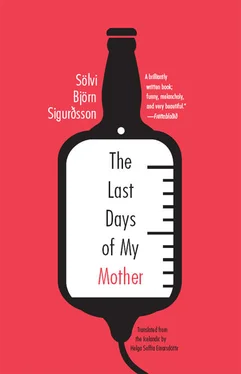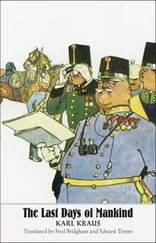While we roamed around the district looking for a good café, Helena told me about the operations in Lowland. I already knew that Fred founded Libertas in the sixties, but neither the brochure nor the website disclosed its rather romantic origins. As a young man, Frederik had left his hometown in the Swiss Alps where his family ran an established hospice for the terminally ill. The young doctor fell out with his father and took off, travelling around Europe studying new discoveries in cancer research. A few years later Frederik had made a bit of a name for himself with his research into cell division in fungi. His father, who was a proud man to a fault, paid out Frederik’s inheritance to convey the message that they were incommunicado from then on. Fred’s road led to Amsterdam, and from there, to Lowland, where all the buildings were falling into disrepair. He bought the estate and still had enough left from his inheritance for renovations and equipment. And that was how the Dutch Innovative Research Center started, focusing on cancer research and treatment. People came from all over Europe to undergo treatment with the new methods. Dr. Fred wanted to found a different hospice from the one his family ran in Switzerland, and the neighboring estate, Highland, played a big part.
“Duncan had a commune over there,” Helena explained. “He came here with some hippy dream after a family dispute in Scotland. He and Fred became fast friends. Duncan wrote a novel based on it, the proceeds are still his main source of income. You saw him the other day, snoring away in the car.”
“Ah, yes, him! So he is a sort of Milan Kundera after all.”
“I don’t know about that. Duncan hasn’t written much more than that novel and numerous updates to the book for each reprint. It keeps him going because the book is pretty popular with the new age crowd. It sells as some sort of self-help guide. But that’s how Libertas came to be. When patients got ill at the cancer center, Duncan would bring them weed and the commune sort of merged with the center, creating a hospice like no other. If people want drugs, they get drugs. Fred monitors the reactions, keeps a log, and administers the correct doses. The dying have nothing to lose in his opinion, but not everyone agrees with him on that.”
She fished out a newspaper clipping from her bag with a photograph of the center, and a printout of an English translation with the heading “Death is Everyone’s Business.”
“I thought you’d maybe like to see this, just to know that people are not all of the same opinion when it comes to Lowland. This is an interview with the guy I was arguing with in the shop, Arthur van Österich. I translated it for you, listen.”
She put on a pompous face and started reading to me the quote I would later paste into my diary about the trip:
People who think that death is entertainment need to think again. If people insist on comparing life to a play they should realize that it can never be anything but a tragedy. The final act, the last setting, is the great crescendo of our suffering. To think that we can ease it by dulling the senses and numbing the pain is absurd. And I have to ask: Should an institution, the main goal of which is to do just that, have the power to deny people the last hope of conviction? Death is not a show. It is the most significant event of our lives .
“Is this aimed at Lowland?” I asked when she’d finished reading and handed me the clipping.
“Lowland, Fred, Helga. Van Österich waltzes in and out of the center as if he’s the one and only authority on the act of dying, and then he attacks people from some philosophical point of view.”
“Who is this guy?”
“Arthur van Österich is the Netherland’s top academic in palliative treatment philosophy. He’s been writing about this stuff for over 40 years, almost ever since Fred started running the hospice. Now he’s dying himself, and he’s determined to be remembered. He’s milking it for everything he’s got — he attends events hosted by the Minister of Health and has his picture taken. He wants everyone to have a right to decide when they die, but because he’s Arthur van Österich, self-appointed heir of Schopenhauer, he insists that this right must not be abused; you may not die the wrong way . I, however, think that he believes that everyone’s death but his own is quite meaningless. He’s said it himself: “First people don’t know how to live and then they don’t know how to die.” The worst thing is that Fred just chooses to ignore this stuff. He’s wholly occupied with his own research and the rest just doesn’t matter to him.”
“But doesn’t the director respond?”
“She thinks Van Österich is entitled to his opinion like everyone else. The fact that he’s dying gave him a chance to check into the hospice, and now he’s using that as an excuse to tear us down. What’s it to him if I give people some pills to make them feel a bit better?” She still seemed agitated after the run-in at the shop. “I’m not saying that he hasn’t done any good, like his website — you won’t find better information on euthanasia anywhere else. But I don’t think that people should make up protocols for how other people should die. Fred lets people die the way they want to, and he’s rewarded for his kindness with attacks from people like Van Österich. People who hate cannabis and think the Netherlands are far too liberal. Which reminds me. .”
She placed the bag from the store in her lap and started arranging its contents on the table; little boxes and vials with peyote, O-3 bubbles, and calmus.
“And this will bring joy and happiness to all?”
“If bliss can be bottled, then yes. I have to run.”
The sun disappeared behind clouds as I walked down Warmoerstraat. The salt-and-pepper sky cast silhouettes on the pebbled pavement and sent my central nervous system on a journey to my shared past with Mother. Images of Great Aunt Edda and my cousin Matti floated by, saturating my brain with such sudden melancholy that I fled into the next ice-cream parlor and gorged on half a quart of mint sorbet.
I hadn’t had much time the past few weeks to consider what the near future had in store. Each day brought new challenges that called for action rather than thought. I surrendered to existing without sensing the thin red line separating me from total ignorance, only just making out the obscure path laid out before me. Was I starting to resemble one of those pathetic people who needed to be followed by cameras while they ruined their lives, planted next to an older individual in some bus on the road to nowhere and tested to the verge of a nervous breakdown, all for some entertainment network? The idea melted into my mint sorbet and drowned in a high-pitched shout from nearby. On the other side of the street, Mother sat in a café with a tall, slender, middle-aged man. He was dressed in jeans and a bright green shirt.
“Trooper! Trooper!” She gestured to a chair and told me that they’d just been to the Museum of Torture and that they’d sat down in Warmoerstraat in the hope of bumping into me. She and Tim were going to enjoy some “hash-jazz” and insisted I come with them. “Have you two met? Tim, do you know Trooper— mein Sohn? ”
He got up, smiled and introduced himself as Timothy Wallace, a patient at the hospice. “Tim was with Ramji when I called to ask him to drive me to the museum,” Mother explained. “I told him to join me on the museum tour — it was on the way to the hash-jazz anyway. Of course it’s up to you what you do, Trooper, but I wouldn’t want you to miss out on this opportunity. As you well know, I don’t smoke hashish myself, but when a single man escorts you to a museum and offers you some hash-jazz you really can’t turn them down.”
Читать дальше












